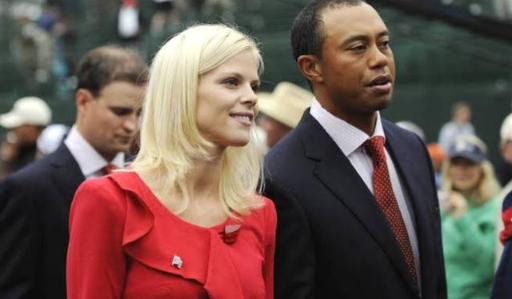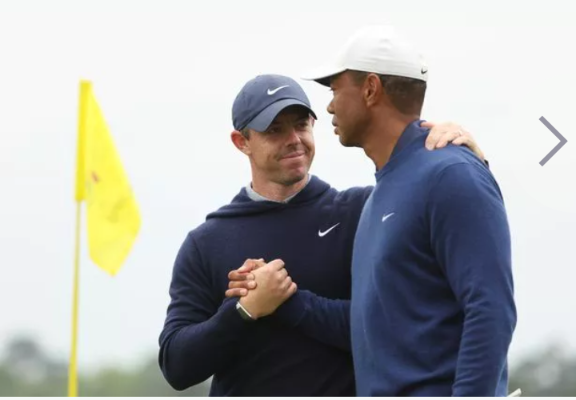Xander Schauffele calls out golf’s money hypocrisy — using NFL QBs
Xander Schauffele Critiques Golf’s Financial Hypocrisy Through Comparison with NFL Quarterbacks Golf, once known for its exclusivity and gentlemanly demeanor, has become a hotbed of financial scrutiny in recent years. The influx of money into the sport, while making players wealthier than ever, has also led to widespread disillusionment. Fans are frustrated, and stakeholders are…
Xander Schauffele Critiques Golf’s Financial Hypocrisy Through Comparison with NFL Quarterbacks
Golf, once known for its exclusivity and gentlemanly demeanor, has become a hotbed of financial scrutiny in recent years. The influx of money into the sport, while making players wealthier than ever, has also led to widespread disillusionment. Fans are frustrated, and stakeholders are navigating a precarious landscape, all while players continue to cash in on substantial earnings. One of the most prominent figures in this narrative is Xander Schauffele, who has seen firsthand the complexities of golf’s financial evolution in 2024.
Schauffele, a two-time major winner, has amassed approximately $17.6 million in on-course earnings this season alone. As he prepares for the BMW Championship, the second of three PGA Tour playoff events that will distribute a total of $100 million to players this August, Schauffele stands second on the Tour’s money list. His success places him among the favorites to win both this week’s event and the PGA Tour’s ultimate prize, the FedEx Cup, which comes with a staggering $25 million first-place reward. If successful, Schauffele’s total earnings for the season could exceed $40 million—a record for the PGA Tour.
From a financial standpoint, Schauffele’s earnings are undeniably impressive. They rival those of a mid-tier starting quarterback in the NFL, a sport with exponentially higher annual TV revenue. Despite these gains, Schauffele expressed a sense of bewilderment during an unusually candid press conference at the BMW Championship. He noted the disparity between golf’s financial landscape and that of other major sports.
“You look at the top-10 quarterbacks,” Schauffele remarked, comparing their earnings to those of golf’s top players. He highlighted Scottie Scheffler’s dominant season, which has netted him $29 million—far more than anyone else on the Tour. In stark contrast, the tenth-highest earner on the Tour’s single-season money list, Shane Lowry, has made just over $5.5 million.
Schauffele pointed out that the NFL’s top quarterbacks enjoy a more consistent financial distribution. The No. 1 quarterback earns around $60 million, while even the No. 15 quarterback takes home $39-40 million. This consistency is missing in golf, where financial rewards are less evenly distributed and heavily dependent on winning big tournaments.
The golfer’s comments hint at a deeper issue: the perception of money in golf compared to other sports. Schauffele observed that when an athlete in another sport secures a lucrative contract, it is often celebrated as a deserved reward for hard work. In contrast, the pursuit of money in golf is frequently criticized as greedy. Schauffele speculated that this could be because golf is traditionally viewed as a gentleman’s game, where discussing money is considered taboo. Yet, ironically, much of the media coverage surrounding golf has become fixated on financial matters.
Money has become a contentious issue in golf’s ongoing culture wars. The emergence of the Saudi-backed LIV Golf tour and the PGA Tour’s response with increased financial incentives have fueled debates over the role of money in the sport. Critics argue that the focus on money detracts from golf’s core values of integrity and sportsmanship. Even those who have not taken money from controversial sources, like Schauffele, find themselves caught in the crossfire of these debates.
The proposed merger between the PGA Tour and the Public Investment Fund (PIF) of Saudi Arabia has added another layer of complexity. While the two sides have reached an uneasy truce, the deal has sparked concerns about the influence of Saudi money in golf, especially given the country’s history of human rights violations. Critics question whether this influx of cash truly serves the sport’s best interests or if it merely masks deeper ethical concerns.
Despite the billions of dollars flowing into the sport, many within the golf community feel a sense of unease. The vast sums of money have disrupted the public’s perception of a fair market in golf. It’s one thing for an NFL star like Patrick Mahomes to earn $60 million in a season, as his achievements on the field justify his salary. But when a golfer like Scheffler earns a comparable amount, it raises questions about the role of timing and opportunity in determining financial rewards.
For Schauffele, however, money isn’t the ultimate goal. “I think the players that make the most money don’t think about money because it’s just not the most important thing,” he said during his press conference. He admitted that winning $25 million would be “really cool and really nice,” but emphasized that his primary concern is winning, not the financial rewards. If he plays poorly, he would be more upset about his performance than about missing out on the money.
Ultimately, Schauffele’s perspective is a reminder that in golf, as in life, not everything can be measured in dollars and cents. For him, the true value lies in the pursuit of victory, a sentiment that remains unaffected by the sport’s ever-growing financial stakes.






